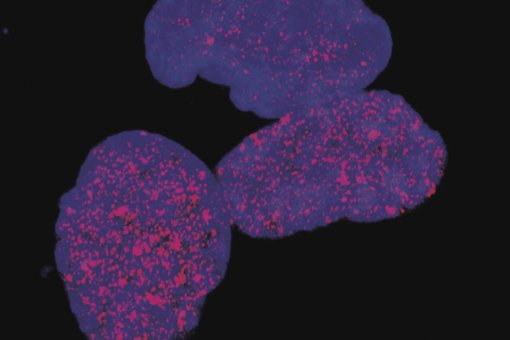Images
Contact

Although the ways in which tumours spread and cause death remain an enigma, recent studies have provided significant data.
Studies on how tumour cells become metastatic are providing insights that can be used to design strategies to fight this process. In the last 10 years, research into the metastatic process has been reactivated, and for a good reason: metastasis, that is to say the spread of an original tumour to vital organs such as the lungs, liver, bones or brain, causes 90% of deaths from cancer.
Now, Joan Massagué, one of the world’s leading authorities in oncology and director of the Cancer Biology Program at the Memorial Sloan-Kettering Cancer Center (MSKCC), together with Gaorav P. Gupta, a student in his laboratory at MSKCC, have published a review article in Cell which examines the most recent conceptual, experimental and technological advances that have contributed to improving our understanding of the origins and nature of cancer metastasis.
Metastasis, that is to say the spread of an original tumour to vital organs such as the lungs, liver, bones or brain, causes 90% of deaths from cancer.
A complex process that is starting to be unravelled
One of the conceptual frameworks introduced by Massagué, and which has revolutionized the focus of studies, is based on Darwin and his theory of evolution. It is known that for cancer cells to undergo metastasis they must evade rules and barriers that have been refined over hundreds of millions of years of organismal evolution. Therefore, scientists began to approach metastasis as a Darwinian evolutionary process, consisting of the selection of cancer cell lines that have accumulated a series of alterations that make them unique. These cells are genetically armed to overcome the defence mechanisms of the organism, and even acquire characteristics that allow them to thrive in an environment which otherwise would be extremely hostile for them.
Thus, it has been shown that the emergence and development of metastasis call for two essential requirements: one, the acquisition of advantageous genetic alterations by tumour cells and, two, the acquisition of compatibility in the tissues to be colonized, which favours later invasion of these metastatic cells and, therefore, the spread of the tumour. The biological cascade of metastasis involves highly specific phases such as the loss of cell adhesion, the increase in motor and evasive capacity of tumour cells, entry into circulation, migration towards another tissue and, finally, colonization of a distant organ. Scientists have started to examine each of these processes and are slowly identifying the genes and molecular mechanisms and pathways that allow the progression of metastasis.
Promising results that contribute to our understanding of metastasis have been obtained and lead researchers to be optimistic. For example, recent studies indicate that certain cancer cells may acquire the capacity to become metastatic when the tumour is still very small. Furthermore, scientists have found new evidence regarding the complicity of healthy cells in tissue to be colonized by tumour cells. These healthy cells not only help cancer cells to survive but also allow them to settle and dominate the organ. In addition, new data is emerging on the molecular mediators that allow tumour cells to enter and colonize specific organs. Finally, recent technological breakthroughs have allowed the validation of these new discoveries by means of the analysis of clinical samples from patients.
The contribution of IRB Barcelona in placing metastasis under siege
As part of the Oncology Programme of the Institute for Research in Biomedicine (IRB Barcelona), Joan Massagué, who is also adjunct director of this institute, is setting up the MetLab. Devoted to research into metastasis, this laboratory seeks to answer some of the many open questions about this process. For example, researchers in the MetLab will devote their efforts to discovering why some breast cancers become metastatic while other do not. Another research line will address the identification of current drugs that may be useful against distinct types of metastasis.
To speed up research into cancer, the cooperation and contribution of researchers from other fields and specializations is required. In this regard, in addition to expert groups in chemistry and computational biology working in IRB Barcelona, MetLab has already established collaboration agreements with public and private sector groups at the Barcelona Science Park, which hosts IRB Barcelona, with hospitals to obtain samples and for treatment trials, and in addition, internationally, with the Memorial Sloan-Kettering Cancer Center, where Dr. Massagué heads the Cancer Biology and Genetics Program.
About IRB Barcelona
The Institute for Research in Biomedicine (IRB Barcelona) pursues a society free of disease. To this end, it conducts multidisciplinary research of excellence to cure cancer and other diseases linked to ageing. It establishes technology transfer agreements with the pharmaceutical industry and major hospitals to bring research results closer to society, and organises a range of science outreach activities to engage the public in an open dialogue. IRB Barcelona is an international centre that hosts 400 researchers and more than 30 nationalities. Recognised as a Severo Ochoa Centre of Excellence since 2011, IRB Barcelona is a CERCA centre and member of the Barcelona Institute of Science and Technology (BIST).




